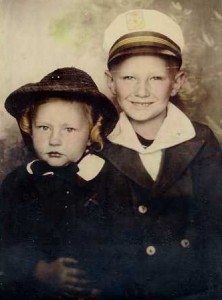What might have been
Parents of kids with developmental issues tend to hate events like birthdays. We hate intrusive reminders that time is passing and that an ever-widening gulf separates our child from his peers.
This disturbed Judy, when Joseph was little. Personally, I felt it more keenly when he entered his teenage years (probably because, prior to that time, I’d expected to see him overcome everything). (WATB shows how I held onto that optimism.)
But later, every time I noticed that my son was really not a bad-looking guy, I thought of the girls who would’ve been calling him. If he could talk to them, that is. I also thought of the buddies who might have been coming round to share fascinations with bands or computer games or cars or other hot topics du jour. I thought of the school projects that might have prompted him to seek my help, during which we might have enjoyed a little extra bonding before he ventured out into the broader world.
By now, he’d most likely be finished with school and launched into a career of one sort or another. He might be married–might even have a kid, although historically the generations come pretty far apart in this family. I was in my mid-thirties at Joe’s birth, and in my fifties when his siblings joined us. I don’t know why, but previous generations followed a similar pattern.
Come to think of it, the repetition is almost uncanny. I have three kids. My father had three kids. His father had three kids. There is some repetition of names, but that part is intentional. On the other hand, how do we account for the fact that the first child born to my grandparents also had a blighted life? From what little I know, Anna was sickly and died–I think of pneumonia–when she was still very small. Go back another generation and the oldest son drowned in a river while swimming with friends. That was way, way before my time, but a brittle newspaper clipping says the parents were “well-nigh crazed with grief.” Prior to that, I think there was a boy who died when a load of hay bales tumbled off a wagon onto him, but that far back the details have been lost.
Except in my own generation, something prevents the oldest of each set of kids in our family line from meeting the normal hopes and expectations a new birth inspires.
In bygone times, someone might have called that a curse. Because no explanation is available, I have to see it as chance. Although “chance,” as an explanation for bad outcomes, doesn’t satisfy me.
The story in WATB–and here I’m thinking especially of the chain of events that resulted in the births of our two younger kids–is the story of one “if” piled on top of another. If even one apparently random event had not occurred, life would have taken an altogether different direction for us. So one might also wonder, even at this late date, how events might have unfolded without the above tragedies–if my aunt, Anna, had survived childhood, and Vance before her, and the other boy before him. And if Joseph were more actively involved in the world right now.
Who else might be benefitting?
An edited version of this article appeared in The San Diego Reader.
